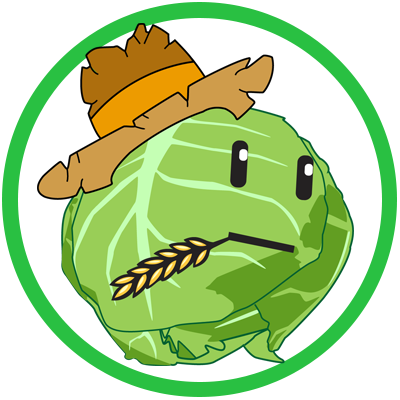
Hiu
I’m a fucking literary writer, me.
– Anna Smith Spark
Have you ever read a book that feels infectious?
Bear with me for a second, I swear this is a compliment.
Have you ever read a book with a style so unique and distinctive that it crawls into your head, patterning your thoughts? When the author’s voice is so powerful that you keep catching yourself making your own pale imitations of it?
Aye, this is that.
Anna Smith Spark’s voice is entirely her own, and I’m pretty sure you haven’t read anything like it before.
Her chapters read like a knife fight.
Thrust. Thrust. Stab. A twirl, a flourish, a twist. You disengage, step back. You eye your opponent, and they eye you. You watch their footwork as they trace abstract shapes in the dust. Watch their feints, and make a few of your own. Tease each other like lovers before a fuck. Then it’s right back to it. Thrust. Thrust. Stab. Parry. Miss, pain. Death.
Death. Death. Death.
Anna Smith Spark toys with language and structure and punctuation.
Some books are like a stone on a flowing river: floating along on a slow and lazy current that gradually grows faster until we come to the waterfall at the climax.
This book is more like a boulder being pushed into a chasm. Long, anxious moments of airtime peppered with the crashing of rock into cliff-face. The boulder cracking and falling to bits with every hit. Long, relaxed sentences surrounded by hurried, abrupt repetition. A cast of characters that dwindles as we fall towards the climax.
This is a challenging read, both in content and style. If you’re looking for something easy, this isn’t for you.
Grimdark in the realest sense. No cheap thrills, no 2edgy4me bullshit, no rape. Just a this-is-how-this-shitty-world-works scenario. Grey characters with splotches of wet, black paint. None of them really likable. Most of them disgusting. But all of them interesting and engaging.
Four POVs: A mercenary, a priestess, a politician and another.
The other is perhaps my favourite character of this year. I don’t fucking like him, but he captivates me. Depth, complexity, and emotion. That’s the way to my heart.
The plot unfolds naturally as we read. It’s mostly set in the city of Sorlost — the last remaining city of a once-proud and expansive empire. It has walls made of solid copper, and more than its fair share of jewels and diamonds and gold. But with rumours of an imminent invasion, Sorlost might soon be caught with its thumb up its arse.
In order to prepare the city, changes must be made. Cruel changes. That’s where our characters come in.
There is no simple, workmanlike prose here. The language is brutal. Hard to get into at first, but like I said: it’s infectious.
I said that Anna toyed with language. Like a clocksmith with intimate knowledge of gears and dials and crystal. Like a pissed-off pitbull with a ball. Raw fucking emotion. Past tense, present tense. First-person, third-person. Showing the casual disregard for “the rules” reserved for those that have mastered them.
Because after all, she’s a fucking literary writer.

Kop
Holy shit.
“Oh hell yeah” (TCOBK, 441).
I had heard about this book, The Court of Broken Knives, prior to its release. I kept seeing extremely positive things about it. And wow. They were right.
This book takes place on the continent of Irlast, mainly in the city of Sorlost, but we do venture into other places such as The White Isles and Immish. It’s a world plagued by death. Death! Death! Death!
Let’s talk about the title for one moment. In the book, there is an area in Sorlost called the Court of the Broken Knife. It is “[a] place where someone was always weeping,” open to the gaze of all with tears remind us, “We live […] We die” (40). And here, everywhere is an honorary Court of the Broken Knife.
Hiu talked about how the book plays with language and punctuation. I want to talk about death. He is cruel. “But he is so beautiful” (448). Who is Marith but another name for Death? Dragon-killer. The book does something rather interesting, whether or not it’s intentional. As Hiu mentioned, there are multiple POVs. The way the book connects them is fascinating.
Marith and Thalia echo Bil and Orhan. Thalia and Orhan share a dirty secret they won’t even admit to themselves: They’re superficial. Orhan’s wife, Bil, is scarred. “In the moonlight, her scars were barely visible. In the moonlight…someone could have loved her. Until they touched her skin” (149). Whereas Marith is beautiful in the sunlight. Until the darkness touches his skin. Orhan even has an open affair with Darath, a man he finds incredibly beautiful, even after he gets damaged in a skirmish. Did I mention Orhan might be a bit of a hypocrite? Thalia also is reminiscent of Marith in that they are both toxic in a sense.
And they’re two of the greatest characters I’ve ever read. They’re more similar to each other than would first appear:
- Marith’s POV: “We fight and we die and that’s the end of it. All there is. Death. Just death. That’s what life is […] Dying” (198).
- Thalia’s POV: “It always comes back to death and dying. Always. Everything” (458).
Marith starts out as a pretty-boy who seems to get lucky and kill a dragon. Throughout the course of the novel, we see every side of him. The moments in the darkness. The moments in the light. Everything in between. He is the definition of morally grey. He is not a good guy who makes the occasional villainous decision. Neither is he a villain who sometimes plays the hero. He is Marith. Death. Beautiful. He is an addict. He struggles. Sometimes I wonder if his glamor affects even himself. He is so addicted to power. And the color of power is red. He is so self-centered that he notices how his bright clothing makes him stand out amidst the dull dress of others.
Thalia herself is conniving. She goes through the motions all while really only caring about herself. But she also loves power. She has wielded the power of life for many years, being the High Priestess. It is she who performs the sacrifices. The punishments. The death. But she is like Orhan in that she gets caught up on the surface of things. She is like Bil because she spends most of her time in the shadows — seen but not really seen. And she is like Marith because there is more to her than meets the eye.
There really aren’t any bad characters in this book. Marith and Thalia just stand out to me. There is a gang, of which Marith is a part, consisting of Tobias, Rate, and Alxine. They enter Sorlost with the job of assassinating the emperor. In the city itself are a group of nobles who also want to assassinate the emperor. Mainly being Orhan and Darath. There are so many characters, and they all feel real. Well written.
This book is about death. And superficiality. Orhan can’t get past his wife’s superficial scars. Sorlost is the city of gold because the dust covering the buildings gleams like gold in the sunlight. Thalia is just an innocent High Priestess doing her duty. Marith is a pretty boy who killed a dragon. Time and time again, we see how what appears on the surface is not what lies underneath.
My only small qualm about the book is that the very beginning, maybe 20-50 pages, felt disconnected in terms of pacing. It was a slow start. Hiu compares it to being like pushing a boulder. Initially, the boulder won’t roll too easily. I think the beginning is necessary. However, it gave off a vibe of, “Let’s get to the good part!”
Overall, though, this book is excellent. It has moments that will make you do double takes. Did that really just happen? That really did just happen. It’s a book that will make you see just how poetic and beautiful grimdark can be.
“They strolled down the wide sweep of Sunfall and crossed the Court of the Broken Knife” (40).
Thank you to the author for providing us with copies for review.

4 thoughts on “The Court of Broken Knives by Anna Smith Spark”